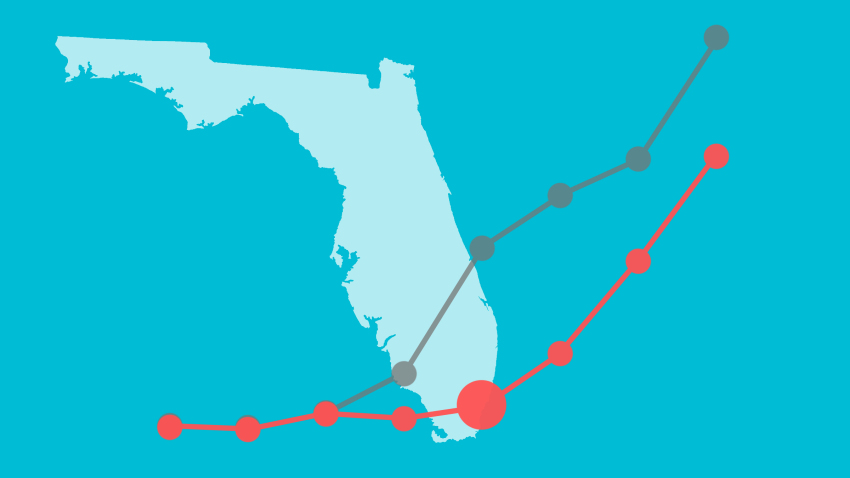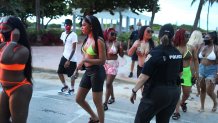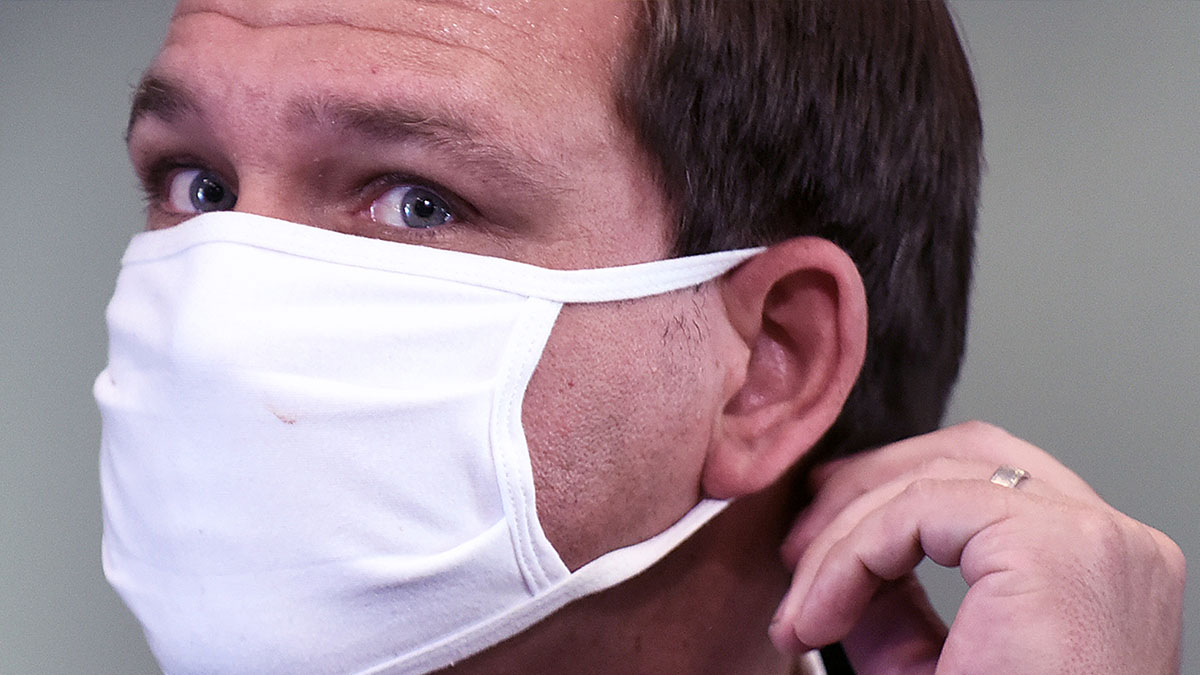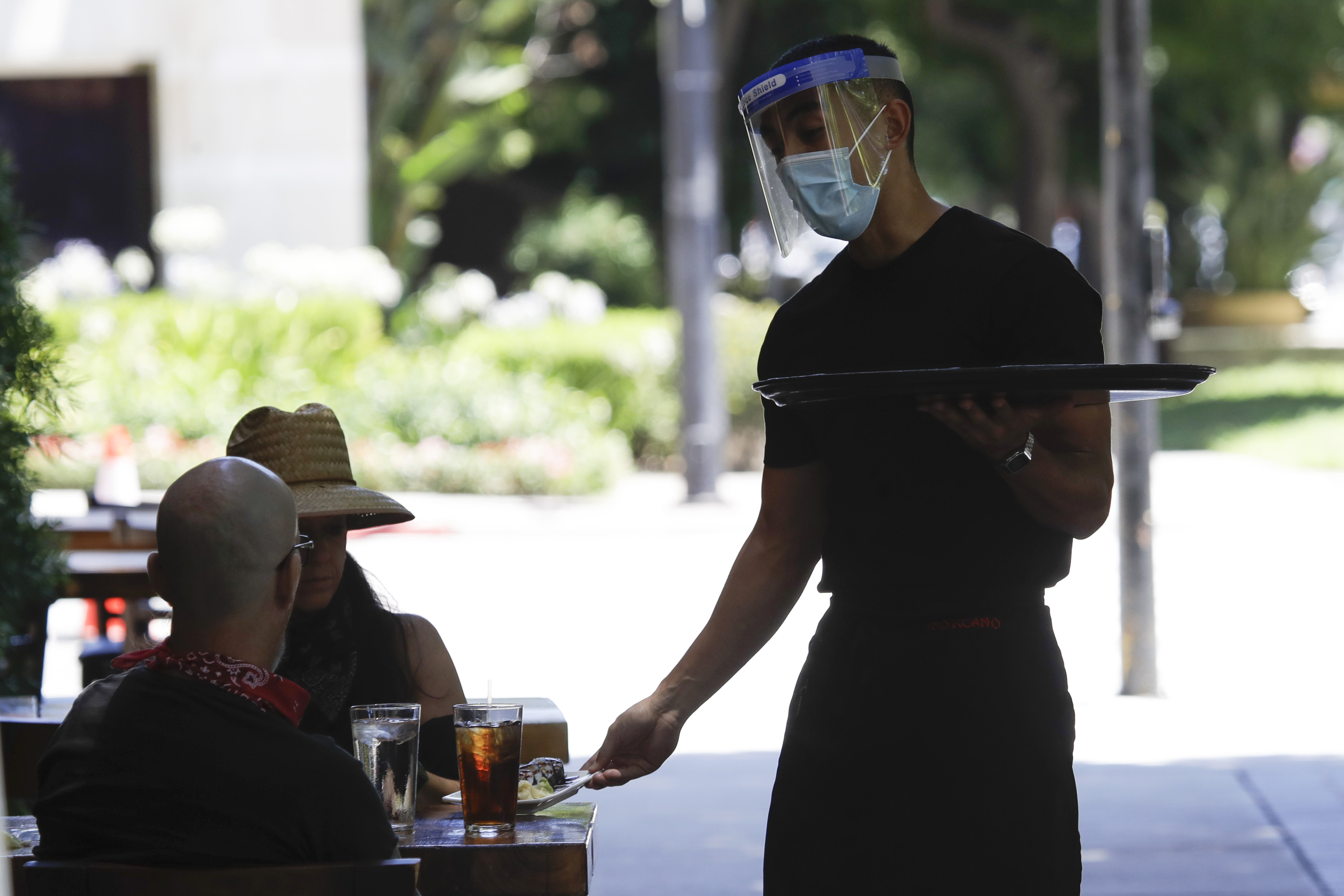What to Know
- Florida reported more than 12,400 new cases Sunday, bringing the state's total to more than 350,000
- The state reported 87 new virus-related resident deaths, bringing the total to 4,982 since the outbreak began
- Miami-Dade and Broward combined accounted for 35% of Sunday's new cases
Florida saw another large spike in coronavirus cases Sunday with more than 12,400 new cases identified, pushing the state's total to more than 350,000.
With 12,478 new COVID-19 cases, the total count rose to 350,047, according to figures released by the Florida Department of Health. The state has seen a large increase in cases in the past several weeks, with more than 80,000 cases confirmed in the last seven days, about 23% of the total count.
Florida also reported 87 new virus-related deaths Sunday, bringing the death toll for state residents to 4,982. Deaths are reported when confirmed to be COVID-related, so some may have occurred days or even weeks ago.
The increase of 87 deaths of Florida residents is the lowest in six days, but the state is still averaging about 100 new deaths confirmed a day over the last week, a record rate. When 109 non-Florida residents' deaths are included, the state has surpassed 5,000 deaths.
CORONAVIRUS LATEST
The increase in cases, the fourth largest jump on record, comes as the share of all tests coming back positive decreased by a full percentage point to 14.2%.
That so-called positivity rate has continued to hold steady at just under 15%, when all tests over the previous week are analyzed. That seven-day rate had peaked at a record 17.6% for the seven days ending June 8.
When only first-time positive tests are counted among Florida residents, the Positivity rate is lower, hovering around 12% over the last two days.
COVID-19 By The Numbers
Click here for a visual look at the virus' impact across the state.

Statewide, more than 3,006,200 people have been tested for COVID-19, and more than 20,970 hospitalizations for COVID-19 have been reported in Florida to-date.
In Miami-Dade County, the state's most populous and the current epicenter of the outbreak, there were 3,212 new coronavirus cases reported Sunday, pushing the county's total to 84,238.
Miami-Dade officials confirmed to NBC Saturday that the county has stopped posting its 'New Normal Dashboard' with coronavirus indicators over concerns that figures provided by the state are inflated.
"County officials are meeting with Florida Department of Health statisticians on Monday to go over discrepancies in the way the state and County collect and report testing data," Patty Abril with Miami-Dade County said in an e-mail.
"Once all agree on the appropriate parameters, Miami-Dade County will be updating the Daily Dashboard to ensure as much of an accurate measure as is statistically possible."
In Broward County, 1,150 new COVID-19 cases brought the county's total to 39,281. Miami-Dade and Broward combined accounted for 35% of Sunday's new cases.
Palm Beach County had 25,785 cases, and Monroe County had 859.
Miami Beach Installs Curfew
Miami Beach’s 8 p.m. curfew went into effect Saturday night, one of the newest restrictions local officials have put in place to try and slow the outbreak.
Some visitors were not happy with the adjustment. “We came down here to enjoy ourselves, and we can’t do anything,” said Tavarshia Jones, a woman who came from Virginia to visit South Florida. “We can’t even get any food. So very surprising, very disappointing.”

Businesses in the city’s entertainment district scrambled to shut their doors while people hurried to get back home, or to their hotels. The curfew only applies to Collins Avenue, Washington Avenue and Ocean Drive, the heart of the city’s nightlife.
Ernesto Rodriguez, a spokesperson for Miami Beach Police, said the drastic measures were needed to slow down the surge in coronavirus cases. “We needed to basically tone down the party,” she told NBC 6. “Shut it off a little bit earlier.”
Remdesivir shortages in South Florida hospitals
Florida hospitals said Saturday that they are in desperate need of a “life-saving” antiviral to help treat the coronavirus patients rapidly filling their beds as cases across the state continue to rise at alarming rates.
Federal health officials sent more than 17,000 vials of remdesivir to the state 48 hours after meeting with Florida hospitals last week. But the Florida Hospital Associations, which represents over 200 hospitals, said it's not enough and asked Saturday for an expedited shipment of the drug and a new distribution process to avoid backlogs, which they say can mean life or death in some cases.
“This initial shipment did not meet the incredible need we have for this live-saving drug,” Crystal Stickle, the group's interim president, said in a statement.
Baptist Health South Florida's share of the 17,000 doses from the federal government lasted several days “and we were very careful in using it," said chief medical officer and ER doctor Dr. Sergio Segarra.
Segarra said the hospital had been experiencing “a critical shortage” of remdesivir for about a week before running out on Friday.
Florida’s hospitals are currently caring for more than 9,000 COVID-19 patients, and more than 20% of those require intensive care, according to the hospital association.



